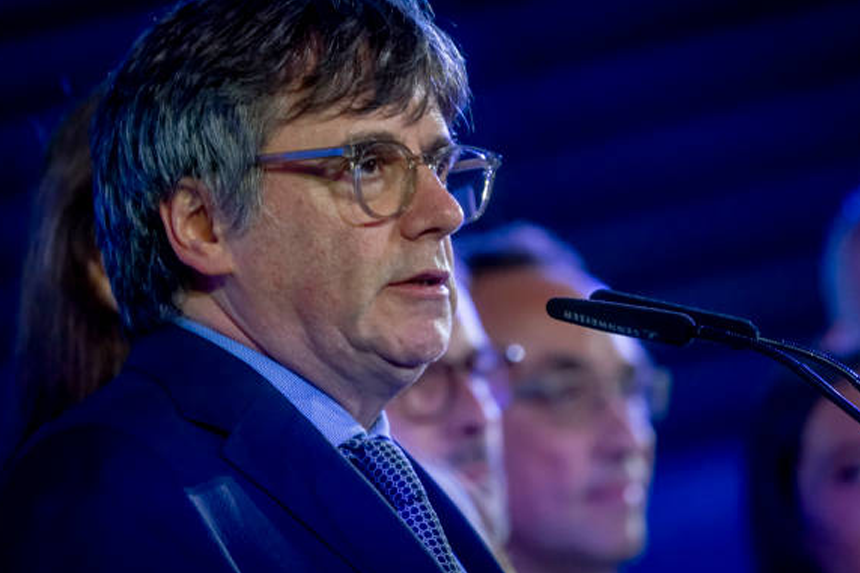Former Catalan Leader’s Dramatic Comeback Challenges Spanish Authorities
After seven years in exile, separatist former Catalonia leader Carles Puigdemont has returned dramatically to Spain. With the Mossos d’Esquadra, Catalan police, setting roadblocks all over Barcelona in an attempt to capture him, his presence has set off a massive police operation in the city. Launched following Puigdemont’s observed departure from a gathering earlier today, the operation—known as “Operation Jaula” (or “cage”) His unannounced comeback has set up arguments over the direction of Catalonia.
An Exile Leader
Puigdemont has lived in Brussels for a few years, fleeing after being charged by Spanish authorities. The allegations result from a 2017 unsuccessful attempt at Catalan independence. Puigdemont and other pro-independence politicians arranged a referendum at that time, which the constitutional court of Spain decided to be unlawful. Puigdemont and his allies declared Catalonia’s independence following the vote, which caused Madrid to take direct control of the territory. Puigdemont fled to Belgium fearing arrest, living in political exile ever since.
"We Are Still Here" - Puigdemont Talks to Supporters
Puigdemont visited hundreds of supporters gathering close to the Catalan parliament in Barcelona early this morning. His brief address was defiant: “I have come back to inform you we are still here.
Leicestershire Summer Camp Poisoning Under Police Investigation
Refining a referendum is not and never will be criminal. Puigdemont disappeared from public view shortly after the powerful warning, leaving many to wonder where he could have gone. Advocates had hoped he would show up for the investiture ceremony for a new regional president within the Catalan parliament. Puigdemont was notably missing, though, when the moment arrived.
Jaula Operations and Police on the Hunt
Police have set roadblocks all around Barcelona in reaction to Puigdemont’s absence, including on main highways leaving the city. Images from La Jonquera, a village on the French border, where police were seen halting vehicles and checking their trunks were aired on Spanish television. The scope of the operation emphasizes how serious authorities are considering Puigdemont’s comeback.
Allies of Puigdemont have heavily criticized the police intervention. One well-known member of his party expressed irritation on X (previously Twitter): “Hundreds of police round Barcelona to arrest President Puigdemont. Paid with public funds, a search is meant to satisfy Madrid’s authorities. A democracy does not act in this way. The outrage grew worse as news leaked out about police dispersing Puigdemont supporters gathering close to the parliament with pepper spray.
Political Reactions and Unmet Needs
The comeback of Puigdemont has set off a spectrum of political responses. Declaring to “do everything necessary to ensure that Puigdemont is arrested,” a member of a far-right group fiercely opposing Catalan independence said This position emphasizes the somewhat divided opinions on the independence movement of Catalonia.
Given Puigdemont’s public announcement earlier this week that he would be returning to Catalonia, the circumstances have many people perplexed as to why Puigdemont remains at loose. Puigdemont uploaded a video on X on Wednesday declaring he had “started the return trip from exile” and contending that any effort to arrest him would be “illegal and arbitrary.” His comeback looks to be a deliberate action in the continuous struggle over Catalonia’s status as well as a threat to Spanish authorities.
Goals Driving the Return
Puigdemont’s comeback seems motivated by many strategic reasons. First, he wants to put pressure on Spanish authorities to implement the new amnesty law, which absolves legal action against Catalan nationalists, to his case. Puigdemont is now contesting the ruling of the Spanish highest court, which had excluded him from this statute on technical grounds.
Puigdemont also aims to throw off Salvador Illa’s investiture as the Socialist candidate slated to be appointed the new Catalan president. Given he would be the first non-nationalist leader of the area since 2010, Illa’s prospective president is noteworthy. Puigdemont wants to regain his power and place his party, Junts per Catalunya (JxCat), as the main force in the pro-independence movement by returning to this pivotal point.
Puigdemont’s aim to discredit his separatist enemies, the Catalan Republican Left (ERC), serves as another incentive. Illa’s investiture has been approved by the ERC, which Puigdemont presents as cooperation with Spanish unionism. Given the ERC still oversees the Catalan police force, Puigdemont’s homecoming presents a politically awkward scenario for them. This story is very powerful.
An uncertain future
For both Puigdemont and Spain, the future is yet unknown as the circumstances keep changing. The following actions will be crucial in deciding the fate of Catalonia and its continuous fight for independence given hurdles in place and a political environment under flux. The extensive police operation and increased tensions highlight the complicated and unresolved character of Catalonia’s search for self-determination and the wider consequences for Spanish politics.








